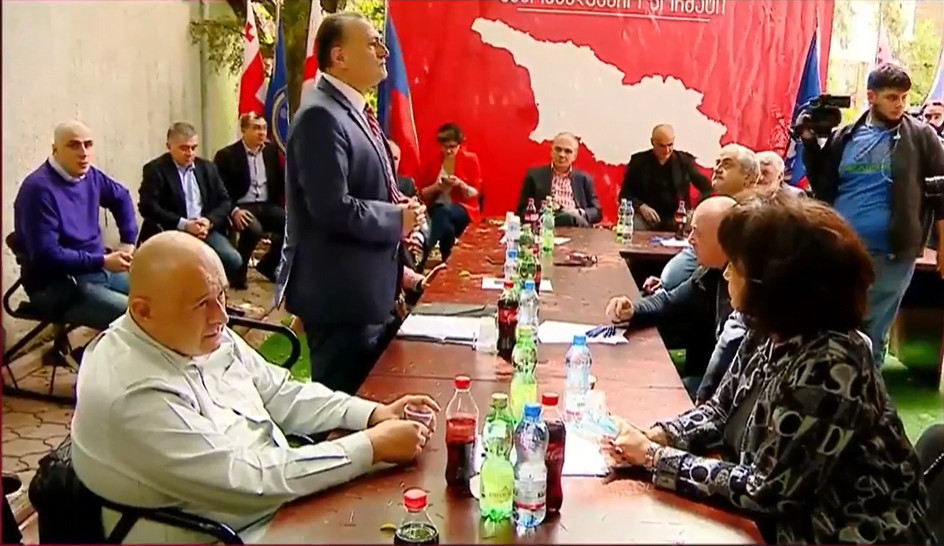Georgian opposition parties gathered at the Labor Party’s office on May 13 to chart the course of action following the controversy concerning the March 8 electoral reform deal. This was the first meeting after two months’ break caused by the Covid-19 lock-down. It took place against the background of the ruling party’s refusal to recognize that releasing persons that the opposition deems “political prisoners” was part of the deal.
In a joint statement released after the meeting the opposition parties called on the ruling Georgian Dream party to fulfill “both parts” of the agreement meaning the electoral reform, as well as the “release the political prisoners”.
The opposition parties said they won’t vote for the Constitutional amendments on the electoral reform unless Gigi Ugulava, Irakli Okruashvili, and Giorgi Rurua “leave the penitentiary facilities.”
- Georgian Dream Denies Having Pledged to Release “Political Prisoners”
- In Quotes: Georgian Dream, Opposition Trade Accusations over Possible Failure of March 8 Deal
Since late November the Labor Party’s hosts opposition gatherings which include the United National Movement, European Georgia, New Political Center – Girchi, the Republican Party, Democratic Movement – United Georgia, New Georgia party and Victorious Georgia, as well as occasionally involving other groups. The ad hoc coalition to discuss the electoral reform and stake out common negotiation position was formed after the Georgian Dream unexpectedly voted down the electoral reform proposal it pledged to implement.
Two-pronged deal
In the joint statement the opposition parties highlighted that the March 8 agreement had two components: a compromise on the future composition of the parliament – 120 MPs elected through proportional and 30 through majoritarian vote – as well as “the release of arrested political opponents and activists.”
They also claimed, the agreement “indicated specific mechanisms” for their release, “in particular the President’s discretion to pardon”.
“Passing of the Constitutional amendments needs support of 113 MPs, which Ivanishvili could secure [anyway, even without the opposition] if he wishes to adopt the electoral reform,” noted MP Tina Bokuchava (United National Movement).
Davit Bakradze of European Georgia, Shalva Natelashvili of teh Labour Party, Badri Japaridze of Lelo for Georgia, all noted that opposition’s vote for the Constitutional amendments was conditional on the “release of the political prisoners.”
Theoretically, the GD (93 MPs) can still amend the constitution without the support from UNM and European Georgia (26 MPs), in case it secures 20 out of 30 remaining votes.
This post is also available in: ქართული (Georgian) Русский (Russian)

